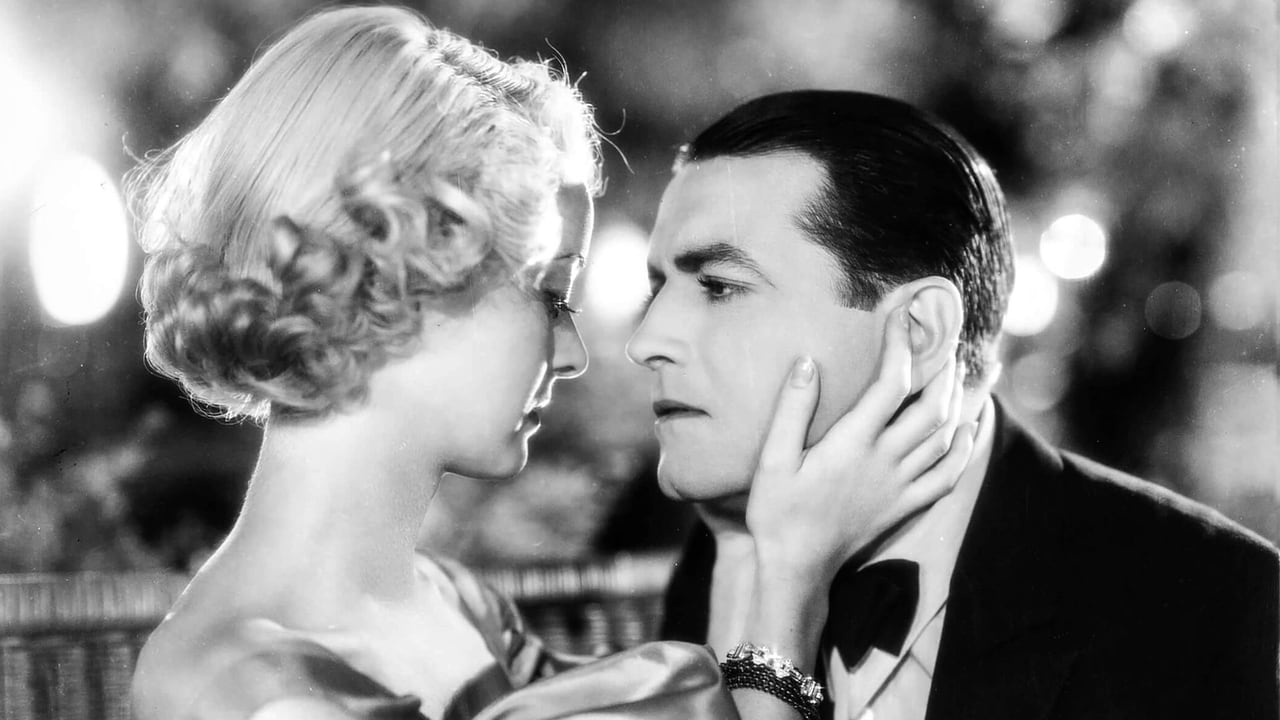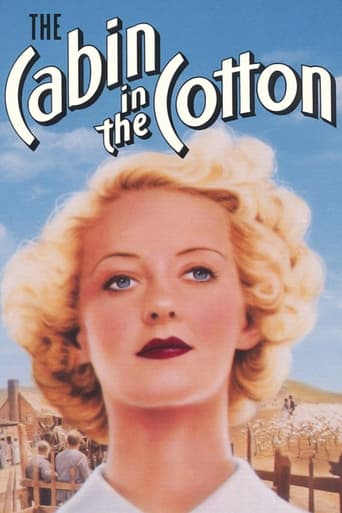



Self-important, over-dramatic, uninspired.
Highly Overrated But Still Good
It is interesting even when nothing much happens, which is for most of its 3-hour running time. Read full review
View MoreIt's a good bad... and worth a popcorn matinée. While it's easy to lament what could have been...
View MoreThe first issue I have with this film is Richard Barthelmess. Now I don't usually pay much attention to age in movies, but this was a little ridiculous. Barthelmess' character is just going' ta schule for larnin' ritmetic. Barthelmess was 37 when he made the film. Guess he musta bin a leetel slow.Beyond that, Barthelmess was considered a good actor??? Really? Here he is wooden, has an almost constant odd stare that actually made me feel uncomfortable. If I were to give an award for the Worst Actor, he'd certainly be a nominee.Aside from the Barthelmess problem, this was quite an ambitious film in 1932, and I would imagine not very popular down South! The screenplay was written by a Pulitzer Prize winning playwright. The film shows the evil on both sides in the rural South -- the poor sharecroppers, often cotton pickers, some of whom steal with abandon; and the wealthy plantation owners who are ruthless in keeping the poor "in their place". While the film says it doesn't take sides, it clearly does. Chasing one of the thieves through the swamp with dogs, and the resulting lynching, is quite powerful. And the climactic scene in a community meeting is done quite well. It's a good script, too bad the main actor was of questionable talent.Dorothy Jordan (who?) gets second billing here, and does fine as the poor love interest, but Bette Davis -- the rich love interest -- with third billing is more central to the plot and more interesting to watch. This was Davis' eleventh film...all done in just 2 years! She was learning fast! In the supporting cast, Berton Churchill is quite good as the main plantation owner. You'll notice a number of other familiar faces in the supporting cast. But I was particularly pleased to see a wonderful character actor named Henry B. Walthall, as one of the sharecroppers. Every time I run across him in an old film I am impressed with his talent.The ending of the film -- so optimistic -- seems a bit unrealistic considering the tenor of emotions in the town, but the screenwriter did set up the things that would need to happen to make such as ending feasible.If it weren't for Barthelmess' acting, I'd be tempted to give this film an "8", so we'll have to settle for a "7". It's an ambitious and serious film, and they did well...especially for 1932. It won't end up on my DVD shelf, but I'll watch it again sometime when it is on TCM again.
View MoreThis film is probably most important because it showcases two stars - Bette Davis and Richard Barthelmess - whose careers are traveling in opposite directions. Barthelmess actually headlines here, but he is a silent star whose career is on the decline, and he has a hard time getting parts after 1934. Bette Davis is a star on the rise, in only her first year of her contract with Warner Bros. where she will become a major star.Unlike many silent era stars, Barthelmess' problem was not his voice but his acting style. He was just a little too wooden to turn in a truly dynamic performance, and this film is no exception. The story is pretty interesting - Barthelmess plays Marvin Blake, a sharecropper's son who is educated by the plantation landowner and ends up keeping his books. His loyalty is torn between the planter who is sponsoring him, and whose daughter attracts him, and the sharecropper families with whom he grew up. The planter owns everything and is always charging high fees and interest via the company store and thus cheating the sharecroppers out of what they need. The sharecroppers have cooked up a plan to short the planter some of their cotton and sell it themselves and reap the rewards.It's really hard to take sides in this film because everyone seems so unsympathetic - both sides are stealing from the other without any remorse or much redeeming value for that matter. It is worth a look if you can find it, although it is not yet on DVD.
View MoreThe workingman's studio, better known as Warner Brothers, did most of its social commentary films with an urban setting. Which in itself makes The Cabin In The Cotton a very unique product to come out of this studio. It's not a bad film, could have been better in delivering its message with a lighter hand. But what the Brothers Warner did was go back on an old standby.Watching The Cabin In The Cotton this morning put me in mind of a much better film in which Preston Sturges satirized the making of films like these. If you remember in Sullivan's Travels, director John L. Sullivan played by Joel McCrea wants to make films like these, the epic he wants to do is entitled Oh Brother Where Art Thou. But in order to sell it he's advised to make sure it has 'a little sex'.Which brings me to why The Cabin In The Cotton is remembered today at all. It's because of what Bette Davis brings to the film, a little sex. This film was a big milestone in her career as she plays the hedonistic daughter of that old southern planter Berton Churchill who keeps his sharecroppers, black and white, in virtual peonage.The lead Richard Barthelmess plays a bright young sharecropper's son and Churchill takes an interest in him, sending him to school to be educated because he has no son to help run the old plantation. What he does have is one sexpot of a daughter to keep Barthelmess on the side of the rich and privileged instead of finding true love with one of his own class in Dorothy Jordan.Churchill has been systematically exploiting the sharecroppers with high interest and cheating them on price. They in turn have been stealing cotton and selling bits of it on the black market. Henry B. Walthall and Russell Simpson have been leading the quiet peasant's revolt which threatens to get open and nasty. I'd have to say that the ending of the film has a forced and obvious conclusion both romantically and socially, but you'll have to see it for yourselves to find out.The Cabin In The Cotton is a dated, but historically valid film about conditions in the old Confederacy before the New Deal. But the sex that Bette Davis brings to her role is timeless.
View MoreThis film was probably made possible through FDR:s "New Deal". It does proclaim a middle road between vulgar capitalism and vulgar communism and so does not take a totally firm side against the owners but it still beats anything made today and what is Reilly a beauty is how well the ideas put forth blend in with the story, which is a sure sign for any masterpiece, which this certainly is. You have to go to Germany and "Kuhle Wampe" to find something similar but that is more like a loosely constructed road-movie compared with this. Truly astonishing stuff. As for Bette Davies and her antics - those are completely secondary and were probably only put there to work as a smokescreen for the producers. Should be shown in every school.
View More